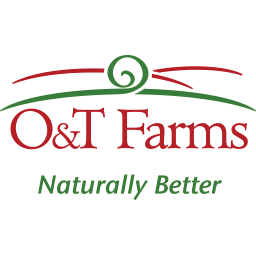The insidious part is the group has little credible science behind them and aims to push this agenda to reduce animal-sourced foods to policymakers worldwide. EAT claims they will influence global, national and local governance, and use political and business action to promote global policymaking. Unsurprisingly, they promote the idea of a meat tax as a system to establish what foods should be easily accessible and available. As an important aside, EAT was founded by Norwegian billionaire, animal rights activist and vegan Gunhild Stordalen.
If taken seriously, the EAT-Lancet dietary recommendations would cause havoc to human health and cause even more malnourishment worldwide. Milk, meat and other animal-sourced foods are vital to human health, providing unmatched nutrient-dense nutrition in highly absorbable formats.
Plants, on the other hand, have a number of anti-nutrients that prevent nutrients from being absorbed by your body. Phytates and oxalates bind with essential minerals, preventing them from being used. There are also several key nutrients that can only be found in animal-sourced foods. When looking into the details of the EAT-Lancet report, one researcher concluded that nutritional deficiencies would be a sure thing:
“UK researcher Zoe Harcombe, Ph.D., analyzed the EAT-Lancet diet and found it to provide only 17 percent of retinol (needed for eye health), 5 percent of our vitamin D needs, 22 percent of sodium, 67 percent of potassium, 55 percent of calcium and 88 percent of iron. Yet as high as these numbers are, they would be higher still if one were to factor in the reality that most of these nutrients are less ‘bioavailable’ to humans when consumed from plant rather than animal sources.
“The EAT diet is also 100 percent deficient in vitamin B12, which can only be obtained from animal foods and is crucial for the healthy growth and cognitive development of children, as well as the ongoing health of adults.”
Cutting animal-sourced foods from your diet does cause nutrient deficiencies over time. A number of vegans have taken to YouTube to share their experiences of what happened when they removed animal-sourced foods from their diets. The health effects were devastating and caused serious health complications. Many ex-vegans share similar tales of nutritional deficiencies creeping into their lives, and without animal-sourced foods, they were unable to live full, healthy, happy lives.
Worldwide, malnutrition is a big issue. There are currently 160 million children globally who are chronically malnourished, and it is the cause of death for 2.3 million children per year. While many in the Western world are giving up animal-sourced foods voluntarily, the majority of the rest of the world is already on a low animal-sourced food diet due to cost and inaccessibility. Thirty-eight percent of children from the least developed countries has had stunted growth from malnutrition.
Animal-sourced foods like milk and dairy are rich in high-quality proteins, essential fatty acids and multiple vitamins, minerals and other important bioactive compounds, and are important in combating malnutrition.
When people have access to more animal-sourced foods, they are less likely to encounter stunted growth. One study found that including three animal-sourced foods daily in a child’s diet reduced their chance of stunted growth by 6 percent. Another study of children in Bangladesh examined the benefits of dairy consumption in combating stunted growth. This study found that kids in households who had access to milk were 10 percent less likely to be stunted than children in households who didn’t get any milk.
A study that compared the growth of children consuming milk versus plant-based milks found that children drinking plant-based milks grew to be shorter. Populations that include a larger amount of milk have also been shown to grow taller than populations that don’t drink as much milk. When you don’t get nutrients, you can’t grow to your full potential.
Besides physical growth, milk is also important for cognitive development, as it is a good source of many brain-boosting compounds. Milkfat, for example, is essential for good cognitive health – 25 percent of your body’s cholesterol is in the brain and is vital for healthy memory function. Other important compounds like iodine have been shown to boost test scores when compared to people who are deficient. Many vegans become iodine deficient as dairy is a leading source for iodine.
To many civilizations in the past, milk was their prime advantage. Milk was the food that provided strength and so was immortalized in myth and legend. The ancient Sumerians said their great kings were nourished by milk. The Hindus said milk was given by the gods to give them immortal life.
Whatever the case may be, the people of the past understood that milk is essential for good health. Eliminating milk from our diets will not make us strong but leave us malnourished. ![]()
References omitted but are available upon request. Click here to email an editor.
Stephen Weststeyn is a California dairy farmer. Check out his blog, Dairy Moos.





